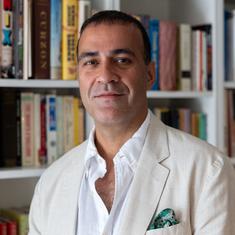After the gangrape and murder of a 23-year-old physiotherapy student in Delhi on December 16, 2012, prompted nationwide outrage, the Union government had proposed the establishment of One Stop Centres – facilities at or near hospitals that would provide women who have faced violence temporary shelter, guide them with the procedure of registering complaints and provide them necessary medical, legal and psychological assistance. These centres, the government said, would be set up using money from the Nirbhaya Fund, set up in 2013 to support schemes for women’s safety.
Five years on, Delhi’s own efforts to establish such One Stop Centres have been called into question and the national capital’s government has not sought money from the Fund for the scheme.
In a review meeting held earlier this month, the Women and Child Development Ministry officials said that Delhi and West Bengal were the only two states who had not sent proposals to establish One Stop Centres, even as 150 such facilities had been set up across the country and others are in the works.
The Delhi government, however, claims this is a misunderstanding as it has in fact established One Stop Centres. “It seems like there is some misunderstanding,” said Delhi government spokesperson Nagendra Sharma. “Delhi already has 11 One Stop Centres in different hospitals.” Of the 11 centres, three are located in hospitals run by the central government, seven in hospitals run by the Delhi government and one in a municipal hospital, Delhi government officials said.
These facilities were set up between 2014 and 2016. In 2015, the Union Ministry of Women and Child Development issued guidelines for One Stop Centres, which included the scope of the facilities and a wide range of services they should provide.
Delhi’s centres do not comply with these guidelines and hence cannot be called One Stop Centres, Union ministry officials said. The Delhi government has also not drawn money from the Nirbhaya Fund for the centres and has financed them on its own.
Sharma said the Delhi government did not send a proposal to the Union ministry for setting up the One Stop Centres as they had already started building these facilities. When asked about the differences between the Union ministry’s guidelines and what the Delhi centres offer, Sharma did not comment.
Falling short
A key difference between what Delhi offers and what the guidelines require is that the facilities in the national capital only assist women in rape cases, though the Union ministry clearly states that One Stop Centres should cater to all forms of gender-based violence, including domestic violence, sexual assault and acid attacks. Also, the Delhi’s centres do not provide services like legal support or temporary shelter for victims and a video-conferencing facility for the woman to record her statement before the court or the police, which are in the Centre’s guidelines. The Delhi centres have facilities for medical examination of women, psychological counselling and recording of statement.
Scroll.in visited one such centre in Delhi’s Sanjay Gandhi Memorial Hospital, Mangolpuri on Saturday – the first to be opened in the city, in 2014 – and found it locked. However, authorities claimed it was functional.

“While one of the rooms is meant for medical examination, the other is for counselling,” said a hospital official. “The process takes place in the presence of a police official. We open the room only when a rape victim comes to the hospital [either directly, or is brought here by the police].”
When asked about cases other than rape, the official said, “Those are sent to the emergency building.”
Officials in the Delhi Commission for Women, an autonomous body, admitted that the existing facilities in Delhi did not comply with the central guidelines.
“If the standards set by the Union Ministry of Women and Child Development are to be adhered to, Delhi technically has no One Stop Centre,” said Bhupender Singh, Media Advocacy Officer in Delhi Commission for Women.
There is also no nodal agency to oversee their functioning. “The Delhi Commission for Women was to be made the nodal agency for the centres but that has not happened for some reasons,” said Delhi government spokesperson Sharma. When asked about the delay in setting up the nodal agency, senior officials in Delhi’s Women and Child Development department said that the relevant file was stuck somewhere. No official clarified where.
The absence of a nodal agency means that there is no body to monitor if services are uniformly being provided in all centres.
According to the Women and Child Development Ministry’s records, 151 functional One Stop Centres had been set up in the country in several states, including Madhya Pradesh, Haryana, Nagaland, Andhra Pradesh and Andaman and Nicobar Island, by July and around 1,300 women who faced sexual violence have taken the help of these centres in the past year. All these centres were fully funded by the Union ministry, officials said. With regard to West Bengal, calls and text messages to Shashi Panja, Minister of Women and Child Development in the state, went unanswered.
What’s in a name?
However, even centres that are recognised by the Union ministry are not functioning as well as they should, said Jayshree Bajoria, senior research consultant at the Human Rights Watch, who is authoring an upcoming report on the access to justice for victims of sexual assault in India. “Most of the One Stop Centres that are fully funded by the union ministry lack uniformity in terms of functioning,” she said. “For ensuring access to more victims, the concerned government first needs to generate awareness among masses, which unfortunately has not happened much in case of One Stop Centres. How would survivors otherwise know about such centres?”
Bajoria said that there was little awareness about these centres, which was the major hurdle to their functioning. “Victims of gender-based violence come to One Stop Centres for support, irrespective of who runs them...At the end of the day, the centres belong to the victims and not the governments.”










